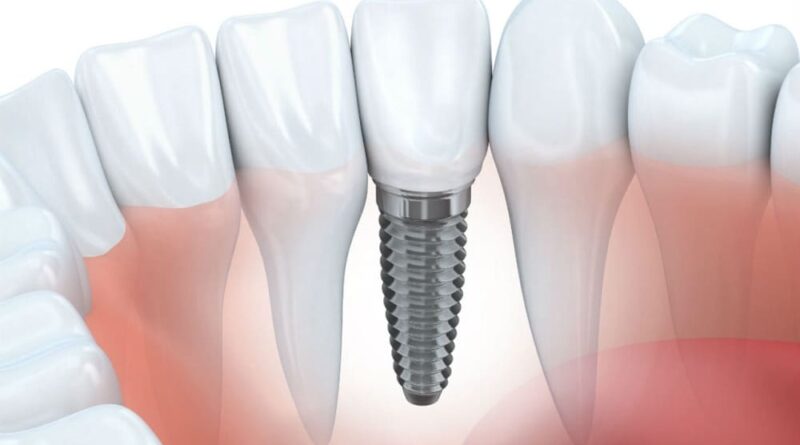Why Are Dental Implants So Expensive?
Dental implants have gained popularity as a long-term solution for missing teeth. They offer numerous benefits, including improved function, durability, and aesthetics. However, many wonder why dental implants have a hefty price tag. Why Are Dental Implants So Expensive? Let’s delve into the reasons behind the cost of dental implants and explore whether they are worth the investment.
The Factors Driving the Cost of Dental Implants
Dental implants can be expensive for several compelling reasons:
1. Materials
The process of creating dental implants involves the utilization of high-quality materials, primarily titanium, due to their commendable biocompatibility. This implies that the implants can integrate with the patient’s jawbone without triggering adverse reactions. However, due to the exceptional quality of these materials, the patient may have to face significantly higher expenses.
2. Customization
Customizing a dental implant to suit the unique oral structure of each patient is a complex and precise procedure that demands careful planning and design. Dental specialists often rely on specialized computer software to create a personalized implant that perfectly fits the individual’s mouth. Additionally, the manufacturing process must meet strict quality criteria, which naturally contributes to the higher cost of dental implants.
3. Training and Expertise
The process of obtaining dental implants is highly complex and intricate, requiring extensive knowledge and proficiency. Specialists in this field undergo years of rigorous training and practical experience to perfect their craft and deliver exceptional results. Due to their advanced skills and expertise, these professionals are in high demand, which may result in higher service costs.
4. Additional Procedures
When contemplating the possibility of undergoing dental implant surgery, one must consider the state of one’s oral health and jawbone. The success of this procedure hinges mainly upon having a strong and stable foundation on which to place the implant. In some instances, supplementary courses, such as bone grafting, may be required beforehand or afterward to ensure that the jawbone can support the implant. It is worth noting that these additional procedures often come with a significantly increased cost to the overall treatment.
5. Overhead Costs
When undergoing dental implant procedures, it is worth noting that there are additional expenses to consider. These overhead costs include rent for the dental office, utilities such as electricity and water, regular equipment maintenance, and administrative fees. Considering these costs when planning the procedure and discussing pricing with your dentist is essential.
Are Dental Implants Worth the Investment?
Many individuals requiring dental restoration procedures often perceive dental implants as a commendable investment toward achieving optimal oral health and well-being in the long run, notwithstanding the considerable financial expense of this treatment option.
1. Long-Term Solution
Dental implants are a permanent solution to tooth loss. With proper care, they can last for decades or even a lifetime. In contrast, other tooth replacement options, such as dentures or bridges, may require replacement or adjustment over time.
2. Improved Oral Health
Dental implants can help prevent bone loss in the jaw and other oral health issues that may arise from missing teeth. Unlike bridges, they do not require healthy teeth removal for support.
3. Natural Look and Feel
Dental implants are designed to mimic the look and function of natural teeth, enhancing the appearance of your smile and boosting your self-confidence. Their stability and natural feel make them a popular choice.
4. Comfort and Convenience
Unlike dentures, dental implants do not slip or shift. They do not require adhesives or unique cleaning solutions, making them a convenient and comfortable option.
5. Improved Quality of Life
Dental implants can make eating, speaking, and confidently smiling easier. These improvements can have a positive impact on your overall quality of life.
It is worth noting that opting for dental implants requires a significant investment of time and finances. Nonetheless, many individuals realize that the enduring benefits of dental implants outweigh the initial expenses. Dental implants can positively transform your oral hygiene and general well-being. To assess whether dental implants are a feasible option for your specific needs and budget, it is advisable to consult your dentist.
FAQs: Addressing Common Questions About Dental Implants
Q1: What is the most expensive part of a dental implant?
- A1: The most expensive component of a dental implant is typically the implant fixture itself. This component, surgically placed into the jawbone, acts as the artificial tooth root. Implant fixtures are constructed from high-quality materials, such as titanium, known for their biocompatibility and durability. The intricate manufacturing processes involved contribute to their cost.
Q2: How much is one dental implant in the UK?
- A2: The cost of a single dental implant in the UK can vary based on factors like the location of the dental clinic, the type of implant used, the complexity of the procedure, and any necessary additional functions (e.g., bone grafting or tooth extraction). On average, patients can expect to pay between £1,500 and £3,000 or more for a single dental implant. However, it’s essential to consult with a dental professional for a precise cost estimate tailored to your unique circumstances.
Q3: Do dental implants last long?
- A3: Dental implants are designed to be a long-lasting solution for tooth replacement. They can endure for many years or even a lifetime with proper care and maintenance. Studies show that up to 95% of dental implants can last at least ten years, with many lasting significantly longer. Key factors influencing their longevity include oral hygiene, lifestyle choices (e.g., smoking), overall health, and bite force.
Q4: How many teeth are on a single implant?
- A4: A single dental implant typically supports one artificial tooth, known as a crown. These crowns are customized to match the patient’s natural teeth in color, shape, and size. For individuals with multiple missing teeth in a row, placing multiple implants and attaching a dental bridge or another restoration to replace several teeth simultaneously is possible. The exact number of implants required depends on individual needs and is determined during the treatment planning.
Conclusion
Dental implants are an efficient and well-liked alternative for replacing missing teeth. Despite their initial cost, their advantages are worth the investment, such as enhancing oral health, improving aesthetics, and providing better functionality. With proper care and maintenance, dental implants can provide long-lasting outcomes, ultimately enhancing your smile and overall quality of life. If you have any inquiries or doubts, it is advisable to consult with a dental professional to determine whether dental implants are the correct choice for you.




